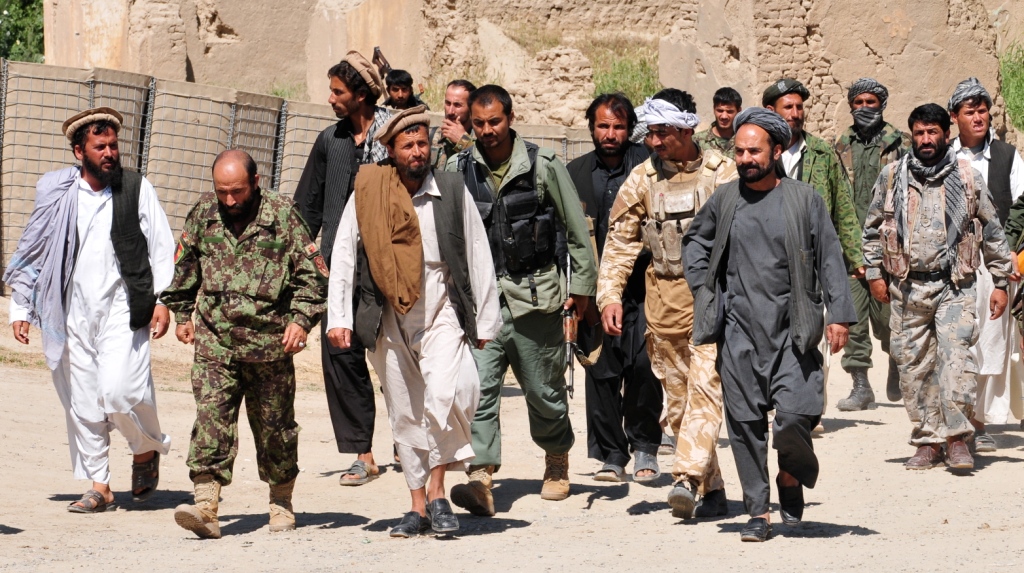Taliban negotiates with Afghanistan
July 16, 2019 | Expert Insights

BACKGROUND
A series of civil wars in 1996 saw Kabul fall into the hands of the Taliban, a hardline Pakistani-sponsored movement that emerged to end the country's civil war and anarchy. By 1998, the Taliban controlled 90% of the country, imposing harsh fundamentalist laws. The human rights abuses turned itself into an international pariah. Only three countries—Pakistan, Saudi Arabia, and the UAE—recognized the Taliban as Afghanistan's legitimate government. Following the 11 September 2001 terrorist attacks on the US, US and anti-Taliban Northern Alliance military action toppled the Taliban for sheltering Osama Bin Laden.
Taliban remains a serious challenge for the Afghan government in almost every province. It considers itself the rightful government of Afghanistan and remains a capable and confident insurgent force fighting for the withdrawal of foreign military forces from Afghanistan, the establishment of sharia law, and rewriting of the Afghan constitution.
In 2018, US President Trump cut off security assistance to Pakistan for harbouring Taliban militants. Subsequent negotiations between the US and the Taliban led to the agreement that the US would withdraw its troops and in return the Taliban would stop the operation of other jihadist groups in Afghanistan.
ANALYSIS
Recently, a 50-member delegation of Afghan officials met in Qatar for peace talks with Taliban leaders. The delegation included politicians, top members of the council, representatives of women’s groups and senior journalists. The Taliban, which has repeatedly refused to negotiate with the pro-US government of Afghan President Ashraf Ghani, agreed to join the meeting on the condition that the attendees do so in a personal capacity.
The two-day summit, facilitated by Germany and Qatar, was a “historic opportunity for all of them to bridge trust deficit, which will help pave the way for direct peace negotiations between the Afghan government and the Taliban,” said Asadullah Zaeri, a spokesman of the country’s High Peace Council.
The seventh round of US-Taliban peace talks in Doha that began on June 29 paused for two days to allow the intra-Afghan meeting to take place. U.S. special envoy Zalmay Khalilzad is nearing an agreement over a time frame for the U.S. and NATO troop withdrawal from the country. The United States is looking to seal a deal with the Taliban ahead of the Afghan presidential election, which is scheduled for September.
The latest round of direct talks is focussed on four issues: a Taliban guarantee that it will not use Afghanistan as a base to launch attacks outside the country; the withdrawal of US and NATO forces; an intra- Afghan dialogue; and a permanent ceasefire.
In addition to the resolution about avoiding civilian casualties, the vague, non-binding declaration also provided an outline of sorts for future negotiations on a peace deal. Women’s rights, the Taliban agreed, would be protected, albeit within an “Islamic framework”.
Ghizaal Haress, a constitutional scholar at the American University of Afghanistan, said it remained unclear what the Taliban were saying by signing the declaration in Doha. "The term 'Islamic regime' is very vague, it's very broad, and there is a fear of what it will mean under the interpretation of the Taliban," she said."Do we mean an Islamic regime like the one in Malaysia or Indonesia? Do we mean an Islamic regime like Saudi Arabia or Iran? Or do we mean one like Pakistan?" she said, referring to governments with varying degrees of openness toward women.
“We hope that they [Taliban] demonstrate the flexibility of their words they in their action,” said political analyst Mohammad Natiqi.
ASSESSMENT
Our assessment is that it is essential to understand who the major players are that are capable of destabilising Afghanistan. Taliban insurgents have been receiving external support from other countries, among which is Pakistan, which could mean a re-emergence of the Pakistan-Taliban.
We believe that a partial restoration of an Islamic Emirate in Afghanistan by the participation of the Taliban in a coalition government, would create a magnet for global jihadists and lead not only to clashes with or between Islamist groups, but to a wide range of conflicts based on opposing national, ethnic and religious interests.
We feel that in order for the Afghan peace process to succeed, Pakistan must play a key role. The primary beneficiaries of a U.S. withdrawal would likely be China and Pakistan. We believe that the U.S. presence in Afghanistan has been an obstacle to China’s desire to include Afghanistan in the China-Pakistan Economic Corridor (CPEC), the flagship of Beijing’s Belt and Road Initiative (BRI).
Read more
Image courtesy - Public Domain








Comments